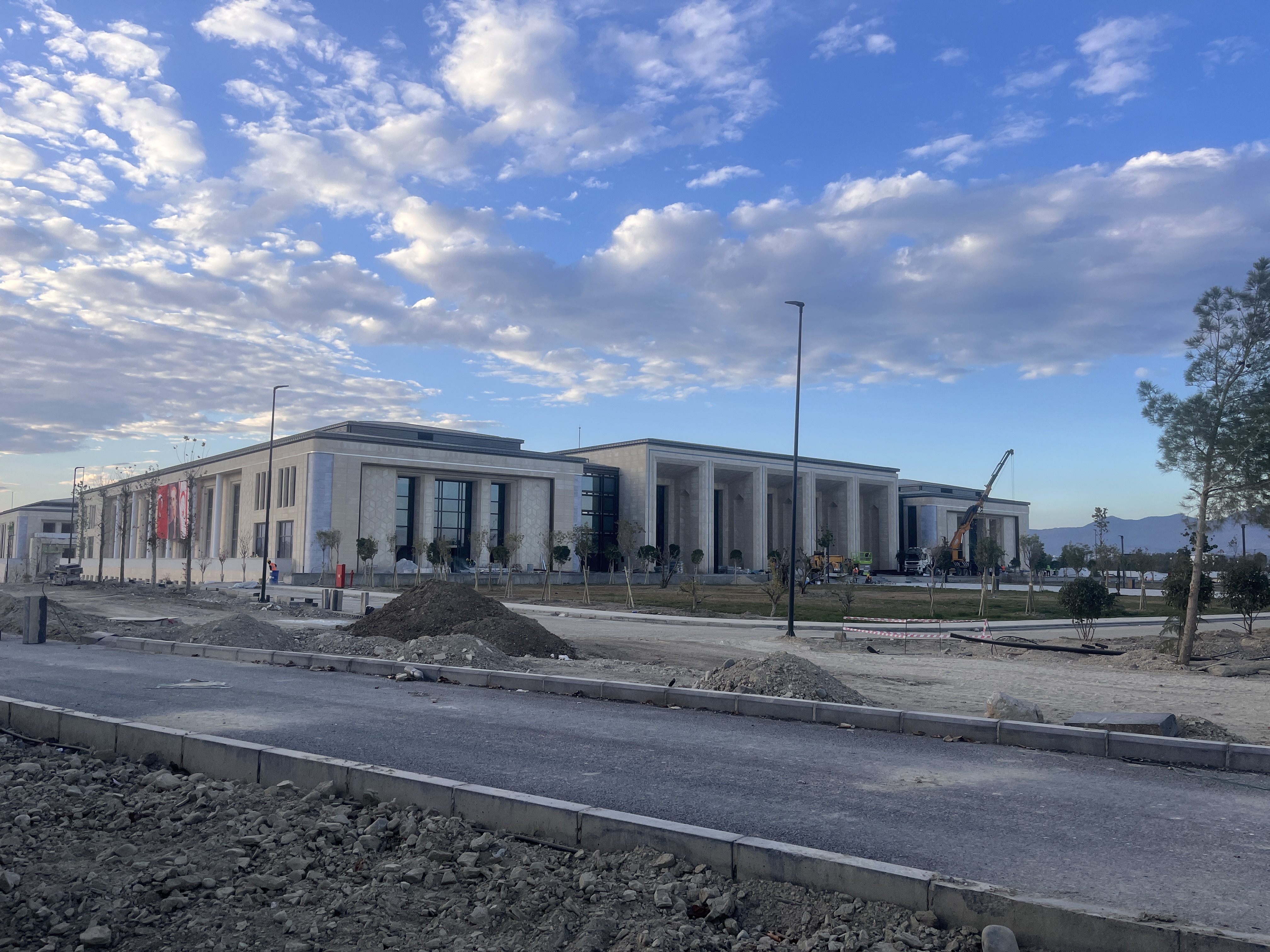The electricity supply to the north’s new ‘presidential’ palace in Ayios Dhometios may be illegal, Cyprus Turkish chamber of electrical engineers (Ktemo) chairman Mehmet Toycan said on Thursday.
Speaking to newspaper Yeni Duzen, he said all constructions and projects in the north which require an electrical connection must be certified by the Ktemo, and that no application for such a certification was filed regarding the palace or any of the other buildings on the complex.
“It is essential for all projects, including those belonging to the state, that a certificate be obtained. The laws and provisions order that it be this way,” he said.
Those comments were made after Turkish construction company Siyahkalem submitted a petition to the north’s electricity authority Kib-Tek requesting that the complex be incorporated into the grid and be charged for its consumption at the special rate offered to ‘government’ buildings.
The petition stated that this would be a temporary measure in place to allow workers to complete electrical installations at the new ‘presidential’ palace, the new ‘parliament’ building, the new public garden and the new mosque on the complex.
Toycan explained that submitting such a petition “is an existing practice”, but noted that “the question of whether the petition was submitted in accordance with the laws surrounding Kib-Tek should be answered by Kib-Tek’s managers”.
“Our chambers have established four certification offices. With these offices, it is a must for all projects to come to be certified. While state-owned projects are exempt from certification fees, they still need to obtain the certificate itself from the certification offices,” he said.
Despite this being the typical order of proceedings, he said, “we have not received any certification applications at this stage”.
“It is very necessary and important that a solution is implemented,” he said.
He also made reference to the fact that other technical chambers had also never received applications for certification, something which had been a point of contention when ground was broken on the project in 2022.
Protestors had gathered on the road outside what would become the new palace to oppose its construction, with the union of the chambers of Cyprus Turkish engineers and architects (KTMMOB) chairman Tunc Adanir saying at the time that the chambers which he represents had been bypassed.
He said at the time that the project had been “externally imposed”, and said any building in the north which is not certified by KTMMOB is “illegal”.
The legal process of the palace’s electrical installations is not the only point of contention regarding its electrics, with Kib-Tek employees’ trade union El-Sen leader Ahmet Tugcu saying on Thursday that the palace’s electrical infrastructure “does not comply with the country’s standards”.
“In the past, the government issued an irregular state tariff with a decree having the force of law because it could not control Emrullah Turanli’s Ercan airport project. The same applies to the emergency hospital,” he said, referring to disputes over Ercan (Tymbou) airport’s effectively subsidised electricity bill.
He added that local construction companies “are not involved in construction projects carried out by Turkey in the north of Cyprus” and that for this reason, those projects do not comply with Cypriot standards.
“The electrical infrastructure and the projects themselves are outside our standards, and for this reason, electrical installations are being built outside the projects,” he said.
Despite the potentially favourable tariff, the north’s state budget for this year foresees that the move from the old palace atop Nicosia’s walls’ Quirini bastion to the new palace will come will see its electricity bills rise eighteenfold from 7.7m TL (€207,476) to 141.8m TL (€3.8m) per year.






Click here to change your cookie preferences